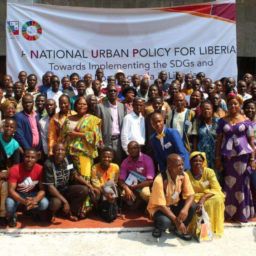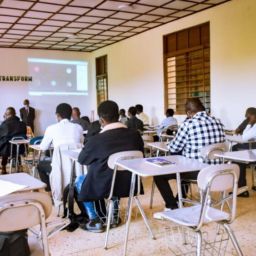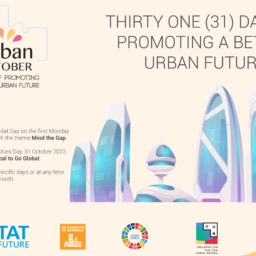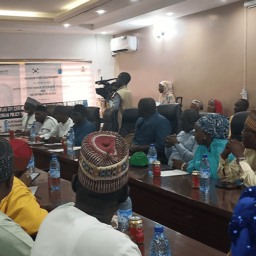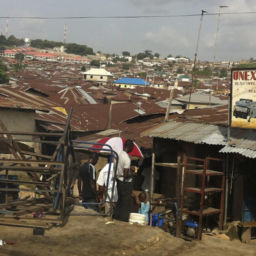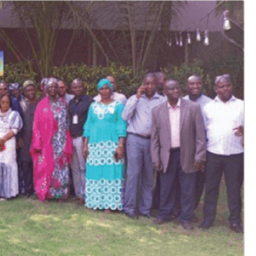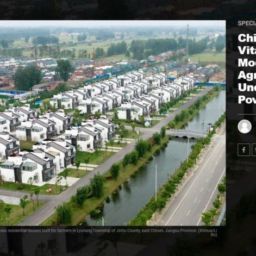Participation and Inclusion at the center of National Urban Policy:
Guinea National Workshop
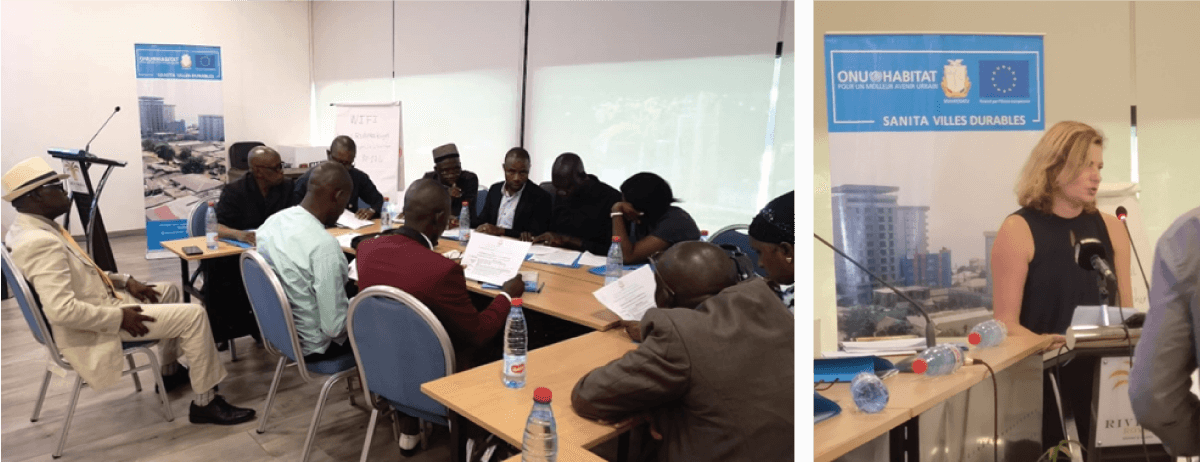
In culmination of the successful month-long multistakeholder workshops in all 8 regions of Guinea, UN-Habitat and the Guinea Government organized a national workshop on 9th November 2022, to consolidate the key priorities identified at regional level, and translate them into the national scale, for inclusion into the National Urban Policy (NUP) of Guinea. This project is part of the SANITA[1] project funded by the European Union (EU), which was well represented by the EU Ambassador in Guinea. A wide array of participants from ministries, national development agencies, administrative authorities, public and private sector, civil society, professional orders and technical and financial partners (PTF) attended the national workshop
The opening remarks by Miss Gwendoline Mennetrier, Senior technical advisor of Sanita project and Un-Habitat representative in Guinea, explained to the audience that the goal of the urban policy is to define a vision, principles and actions the government should implement to address the urbanization challenges. She then invited the European Union Ambassador, Jolita Pons, who highlighted that sanitation and mobility are the priorities of European Union action in Guinea. “The government and the institution are joining effort on the 2014-2020 sanitation program. The regional plan of EU action in West Africa focuses on the Corridor Praia-Dakar-Abidjan which include Conakry.” She added.
Mr Ibrahima Sory Bangoura of the ministry of urbanism, Housing and Territorial development, who chaired the session reiterated that the Guinea National Urban Policy is one of the 5 expected results of the SANITA Program.
The session then started with a Mentimeter[2] presented by Mr Frederic Happi, Programme Management officer at UN-Habitat. The real-time survey captured the priority that each participant wanted to be considered in the future Guinea’s NUP. Considering the diagnosis, the participants could select the five orientations they judged as crucial for the NUP. The tool then tallied the inputs to arrive at the most recurring development priorities. From the mentimeter results, reorganizing the urban sector, urbanization and land management appeared as the most urgent priorities for inclusion in the NUP.
Then followed the presentation of the diagnosis of the urban sector carried out in 2020, which had also been presented in the 8 regional workshops. It demonstrated to the participants the current state of urbanization in Guinea at national level, its stakes and challenges, as well as the proposed initiatives for an improved urban and peri-urban environment. The second presentation recapped the concept of national urban policy, explaining to the participants the content and process of developing a NUP as well as the actors and their role in its development and implementation.
Participants then went into focus groups, a session which was based on two main exercises. The first exercise explored the links between the urban diagnosis and national urban policy, focusing on the recommendations from the Diagnosis Note. The second exercise focused on the priorities at the national level. The collective results obtained from the focus groups were just as similar as those of the Mentimeter survey. Having discussed prospective scenario of the national Urban Policy, urbanization as the leverage for Guinea sustainable development emerged as the one priority collectively selected by the audience. Following this national and the series of regional workshops, the next step is inclusion of the outcomes of the national workshop into the NUP, and continued participatory formulation of the national urban policy of Guinea.
[1] The Urban Development and Sanitation Programme in Guinea (SANITA) is a Programme funded by the European Union, with National Urban Policy being one of the five result areas of the Programme.
[2] Mentimeter is an interactive survey tool, used during meetings or workshops to enhance participation. For more information, click here: https://www.menti.com/


